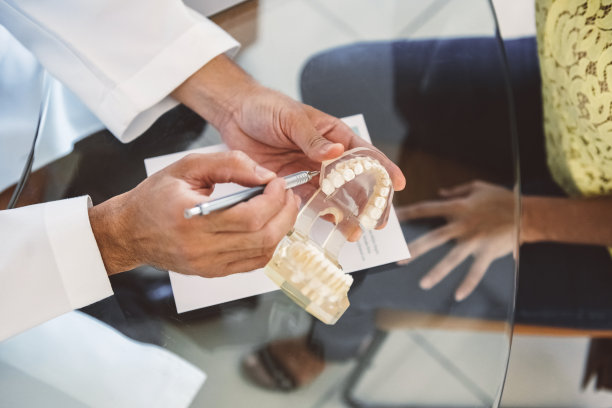Summary: After receiving a dental filling, proper post-operative care is essential for ensuring optimal recovery and maximizing the longevity of the filling. This article outlines four key guidelines that patients should follow: maintaining oral hygiene, managing discomfort, avoiding certain foods and habits, and scheduling follow-up appointments. By adhering to these practices, patients can recover effectively while ensuring their fillings remain in good condition for years to come. The following sections delve into each guideline, providing detailed insights to ensure that individuals receive the best possible outcomes after their dental treatment.
1. Maintain Good Oral Hygiene Practices

One of the most critical aspects of recovery after a dental filling is maintaining good oral hygiene. Brushing your teeth twice daily and flossing regularly are essential practices that help prevent the buildup of plaque and bacteria around the filling, which can lead to further decay.
For the first 24 hours post-procedure, it is advisable to avoid brushing the area around your newly filled tooth to minimize any discomfort or disruption to the filling itself. However, continuing with brushing and flossing in adjacent areas is crucial to maintaining overall oral health.
After the initial 24-hour period, gently brush your teeth while being careful around the filling site. Using a soft-bristled toothbrush can help soothe any sensitivity and gradually restore normal hygiene practices without causing irritation.
2. Manage Discomfort and Sensitivity
It is normal to experience some discomfort or sensitivity in the days following the dental filling procedure. Over-the-counter pain relievers can be very effective for managing this discomfort. It is essential to follow the recommended dosage and consult your dentist if the pain persists.
For sensitivity related to temperature, it鈥檚 important to monitor the types of foods and beverages consumed. Avoiding extremely hot or cold items can help mitigate this sensitivity while the area heals. If the sensitivity continues beyond a couple of weeks, reach out to your dentist for further evaluation.
Ice packs can also be helpful in reducing swelling or discomfort. Applying an ice pack on the outside of your cheek for about 15 minutes at a time can provide relief and aid in the recovery process.
3. Avoid Certain Foods and Habits
Immediately following your dental filling, it鈥檚 wise to avoid certain foods that could compromise the integrity of the filling. Hard foods, sticky candies, and extremely chewy items can dislodge or damage a new filling, especially if it鈥檚 made from composite materials.
Caffeinated and alcoholic beverages should also be avoided for 24 hours after the procedure since they can cause dehydration and negatively affect healing. Instead, focus on consuming soft, nutritious foods like yogurt, mashed potatoes, or smoothies during the initial recovery phase.
Avoiding habits like chewing ice or grinding your teeth is critical for maintaining the wellness of your dental filling in the long term. These habits can lead to premature wear, requiring additional dental work.
4. Schedule Follow-up Appointments
Regular follow-up appointments with your dentist are key to ensuring that the filling remains secure and the tooth is healing properly. These check-ups allow your dentist to evaluate the filling and address any issues that may arise early on.
Typically, a follow-up is recommended within a few weeks after the filling has been placed, especially if you experience any increased sensitivity or discomfort. Consistent dental check-ups can help catch potential problems before they escalate into more significant issues.
Additionally, these visits provide an opportunity for you to discuss oral hygiene practices, dietary choices, and any other concerns you might have regarding your oral health. Your dentist can offer personalized advice based on your unique situation, adding further to the longevity of your dental fillings.
Summary:
Following dental procedures like fillings requires diligent care and attention to ensure optimal recovery and long-lasting results. By adhering to guidelines on maintaining oral hygiene, managing discomfort, avoiding specific foods, and keeping regular dental appointments, patients can significantly enhance their healing and the durability of their dental work.
This article is compiled by Vickong Dental and the content is for reference only.
Vickong Dental
Vickong Dental is a large medical group established in Hong Kong in 2008 by professors from well-known medical universities in Guangdong and Hong Kong, as well as medical doctors from key national '985' universities (including Master's supervisors and senior professors). The chain of branches brings together expert dentists with PhDs and Master's degrees from Hong Kong and Mainland China, committed to providing high-quality dental treatment.
"Vickong Dental Practices the University Motto of 'Healing and Serving Society,' with a Stable Operation for Sixteen Years. It Has Been honored with Hong Kong Enterprise Leaders's Choice,' and is a Global Trusted Implant Center for the Nobel Implant System. Recommended by Hong Kong Metro Broadcast and Guangdong Television, it Serves Customers from Over Thirty Countries and Regions, Gaining the Trust and Favor of Citizens from the Guangdong-Hong Kong-Macau Greater Bay Area and Surrounding Cities.

Thousands of customers' unanimous praise
The most recognized and highly recommended dental service by customers in the Guangdong-Hong Kong-Macau Greater Bay Area
We Ensure You Receive Detailed Care and Attention Here
Hong Kong standards, Shenzhen prices, Your Trusted English-speaking dentists

Vickong Dental Medical-Grade Instrument Disinfection Process
Vickong Dental Medical-Grade Instrument Disinfection Process

Vickong Dental Chain: A Warm and Comfortable Environment for Treatment






Appointment Hours

Q&A
Why choose Vickong Dental?
Vickong Dental practices the university motto 「Medicine to Benefit Society」, with each branch bringing together highly qualified dentists with doctoral and master’s degrees from Hong Kong and the Mainland, and has maintained seventeen years of steady operation。Recipient of 「2024 Hong Kong Enterprise Leaders Brand」, 「2025 Hong Kong Enterprise Leaders Brand」, a Nobel Biocare Global Trusted Implant Center, and a brand recommended by Metro Radio Hong Kong and Guangdong TV。
To date, we have served customers from more than thirty countries and regions,earning exceptionally high word-of-mouth recognition and trusted recommendations from residents across the Guangdong-Hong Kong-Macao Greater Bay Area and surrounding cities
We have eight major branches in Zhuhai、Shenzhen,and a consultation and service assurance center in Hong Kong,so you can book a free consultation at any time for any questions,which is very reassuring.
If I do not accept the quotation after the CT scan, will I be charged??
No! As long as the actual treatment has not started, you will not be charged any fees.
Will there be any additional charges during the treatment process?
No, there won’t be any additional charges. Before treatment begins, we will clearly explain the treatment plan and its corresponding fees. Only after the patient agrees and signs the consent form will we proceed with the dental service.
Can I pay in Hong Kong dollars?
Yes. Vickong Dental accepts payment in Hong Kong dollars. The amount will be converted based on the exchange rate of the day, and the applicable rate will be clearly communicated to you in advance.
Can I reschedule my appointment at any time?
Yes. Please contact us via **WeChat** or **WhatsApp** as early as possible, providing your original appointment time and details, along with your preferred new date and time slot for rescheduling.













